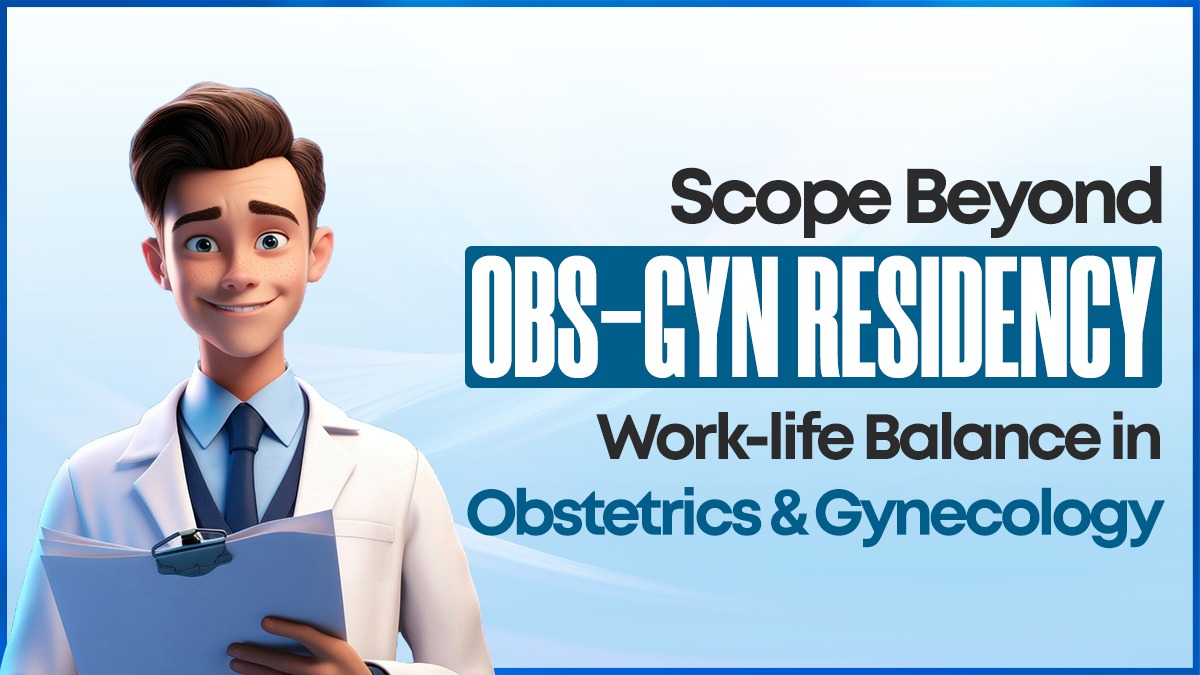Estimated reading time: 3 minutes
Medical graduates who aspire to specialize in obstetrics and gynecology (OBG) must make the crucial decision to choose between a DNB (Diplomate of National Board) and an MS (Master of Surgery) in this field.
Both options have their advantages and disadvantages, and it is good to understand how the decisions intersect with career growth understanding their impact on career growth is essential.
Understanding DNB and MS in OBG
Let’s understand the differences between DNB residency and MS residency in OBG, which will help you determine which option is suitable for your career aspirations.
DNB Residency in OBG
The DNB residency in Obstetrics and Gynecology is offered by the National Board of Examinations (NBE) and is recognized by the Medical Council of India (MCI). DNB programs are available in both government and private hospitals. The quality of training varies by institution, which is why hands-on experience also varies.
MS Residency in OBG
MS residency in OBG is offered by medical colleges affiliated with universities. It’s the traditional postgraduate medical degree in India, which generally conveys a structured training course in well-known medical colleges.
Comparison Based on Key Factors
1. Admission Process
- MS in OBG admission is done primarily through the NEET PG examination followed by different ranks for various seats in various government medical colleges.
- DNB admission is through the DNB exam conducted by the NBE, based on a merit system.
- For super-specialization in gynecological oncology, fetal medicine, and reproductive medicine, candidates must qualify for the NEET SS exam.
2. Training and Exposure in OBG
- MS residency programs are generally very well established in medical colleges, with a large number of different labour rooms, emergency cases, and high-risk pregnancies.
- DNB residency programs in OBG vary in terms of the quality of training based on the hospital. Some DNB institutes offer excellent clinical exposure, while others will see very few patients.
- DNB residents may have to work hard to gain clinical exposure.
3. Recognition and Career Prospects
- The MS degree is traditionally preferred in academia and government hospitals.
- The DNB qualification is now widely accepted, and the difference between DNB and MS is lessening.
- Both degrees qualify one for super-speciality courses via NEET SS residency.
- DNB graduates may still find difficulty in getting faculty positions in some government medical colleges, yet private hospital opportunities are on the rise.
4. Passing rate and Difficulty Level
- There is a structured form of instructional teaching, faculty guidance, and regular assessment in MS examination preparations.
- DNB examination is regarded as much tougher because of its stringent exit exam criteria and rigorous assessment process.
- DNB examination preparation requires self-study and wide clinical exposure for the structures of formal education vary in different hospitals.
5. Private Practice and Job Opportunities in OBG
- Both DNB and MS graduates may establish a successful private practice in OBG.
- Most private hospitals appreciate both degrees, although MS may have an edge over it for academics.
- After OBG residency, super-speciality options can offer further career opportunities in gynecological oncology, fetal medicine, and reproductive medicine.
Conclusion: Which is Better for Your Career in OBG?
Both DNB residency and MS residency in OBG offer great career streams. The choice should be based on the following factors.
Your preferred training environment and clinical exposure. Your desires about your long-term career (private practice, academics, or super-specialization). Your convenience of adapting to independent learning in DNB residency versus the structured imparting of education in MS residency. The key to success is to stay committed, keep learning, and embrace the challenges that come with the journey!



